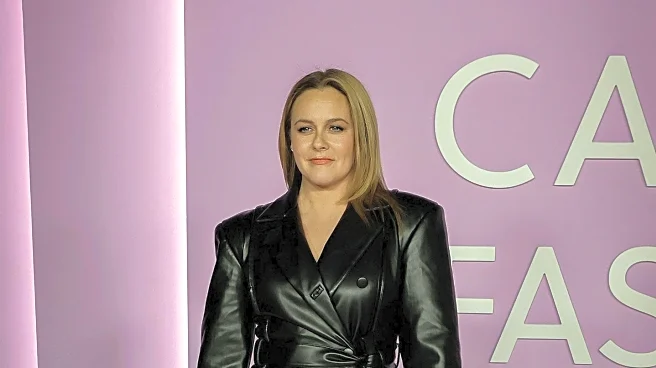What is the story about?
What's Happening?
The University of Chicago has announced a pause in admissions for its Ph.D. and master's programs across several schools due to mounting financial strains. This decision comes as the institution faces budgetary challenges, reflecting broader economic pressures impacting higher education. The announcement was made during a week marked by significant developments in Chicago, including budget discussions for Chicago Public Schools and a tentative contract agreement between the city and the Chicago Fire Fighters Union Local 2. Additionally, political activities at the Illinois State Fair highlighted ongoing nationwide redistricting efforts and preparations for the 2026 midterms.
Why It's Important?
The suspension of admissions for advanced degree programs at a prestigious institution like the University of Chicago underscores the financial difficulties facing higher education. This move could have significant implications for prospective students and the academic community, potentially affecting the university's research output and its ability to attract top talent. The decision also reflects broader economic challenges, as institutions nationwide grapple with budget constraints and shifting priorities. The impact on students seeking advanced degrees may lead to increased competition for spots at other universities, altering the landscape of graduate education.
What's Next?
The University of Chicago's decision to pause admissions may prompt other institutions to reassess their financial strategies and program offerings. Stakeholders, including students, faculty, and policymakers, will likely monitor the situation closely, considering potential adjustments to funding models and academic priorities. The broader implications for higher education could involve discussions on sustainability and innovation in academic programs, as universities seek to balance financial viability with educational excellence.
Beyond the Headlines
This development raises questions about the long-term sustainability of traditional academic models in the face of economic pressures. It may lead to increased scrutiny of university funding sources and the prioritization of programs that align with market demands. The ethical considerations of limiting access to advanced education during financial downturns could spark debates on the role of higher education in society and its responsibility to adapt to changing economic landscapes.

















